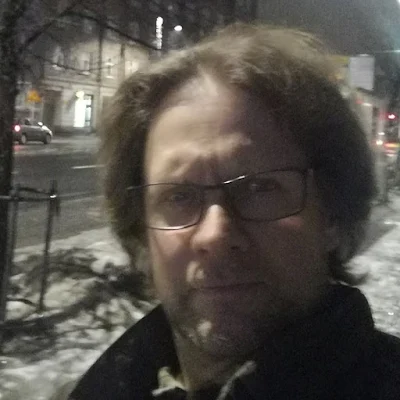 Norjassa on väki tummunut kovin sitten viime vierailuni kesällä 1981, jolloin olin metsätöissä Finnskogenissa
Norjassa on väki tummunut kovin sitten viime vierailuni kesällä 1981, jolloin olin metsätöissä Finnskogenissa
 On näköjään niin että pitäisi tuota pigementtiä muuttaa jotta saisi EU:ssa turvapaikkaoikeuden, vaikka Suomi on saanut eniten EU:ssa EIT:n langettavia tuomioita epäoikeudenmukaisista ja puolueellisista oikeudenkäynneistä, joita myös puolueellisiksi oikeudenkäynneiksi kutsutaan.
On näköjään niin että pitäisi tuota pigementtiä muuttaa jotta saisi EU:ssa turvapaikkaoikeuden, vaikka Suomi on saanut eniten EU:ssa EIT:n langettavia tuomioita epäoikeudenmukaisista ja puolueellisista oikeudenkäynneistä, joita myös puolueellisiksi oikeudenkäynneiksi kutsutaan.
Seppo Lehto politisk asyl sökare i Oslo Norge
Suomessa halutaan harjoittaa noitavainojen uudelleen henkiinherättämisriittejä ns. jumalanpilkkatuomioilla
Erityisesti epäilyttää mika illmanin ja Korkeimman oikeuden eurooppalaisen lain ja sananvapauden kunnioittamattomuus:
http://blasphemy.ie/2009/05/30/european-lawyers-oppose-blasphemy-laws/
May 30, 2009
Justice Minister Dermot Ahern says that he is forced to revive the crime of blasphemy because of legal advice from the Attorney General. But independent legal advisors to the Council of Europe have advised that the offence of blasphemy should be abolished throughout Europe, in a report co-written by the Director General of the Irish Office of the Attorney General.
The Venice Commission, the body that advises the Council of Europe on constitutional matters, has just published its annual report for 2008. It includes a report on freedom of expression and freedom of religion which was co-written by the Commission’s Irish member, Finola Flanagan, the Director General and Senior Legal Advisor in the Office of the Attorney General.
The report concluded that incitement to hatred, including religious hatred, should be a crime; that insult to religious feelings should not be a crime; and that the offence of blasphemy should be abolished (which is already the case in most European States) and should not be reintroduced.
Democracy must not fear debate
The report advised that the purpose of any restriction on freedom of expression must be to protect individuals, rather than to protect belief systems from criticism. It said people must be able to criticise religious ideas, even harshly and unreasonably, and even if it hurts other people’s religious feelings, as long as they do not advocate hatred against an individual or groups.
The report said that democratic societies must not become hostage to the excessive sensitivities of certain individuals, and that freedom of expression must not indiscriminately retreat when facing violent reactions. Instead, the level of tolerance of these individuals and of anyone who would feel offended by the legitimate exercise of the right to freedom of expression should be raised.
The report found that it is not exclusively or even primarily for the courts to find the right balance between freedom of religion and freedom of expression, but rather for society at large, through rational discussions between all parts of society, including believers and non-believers.
It concluded that: “Democracy must not fear debate, even on the most shocking or anti-democratic ideas. It is through open discussion that these ideas should be countered and the supremacy of democratic values be demonstrated. Mutual understanding and respect can only be achieved through open debate. Persuasion, as opposed to ban or repression, is the most democratic means of preserving fundamental values.”
Existing Irish law is adequate
In an appendix to the report, in which Flanagan answered various questions about Ireland, she was asked: “Is there in your opinion/according to the leading doctrine a need for additional legislation concerning: (a) the prohibition of blasphemy or religious insult? (b) incitement to religious hatred? (c) hate speech concerning a group? (d) speech or publication with a discriminatory effect?”
She replied: “In general the legislation provides adequately for these matters. The criminal law, together with the Prohibition on Incitement to Hatred Act and the Criminal Justice (Public Order) Act, provide for appropriate offences. In addition to legislation outlined above, there is equality legislation which prohibits discrimination on grounds of religious belief (or the absence of belief) and on grounds of racism.”
She then cited two bodies that have recommended that the offence of blasphemy be removed from the Irish Constitution: the 1991 Law Reform Commission chaired by Justice Ronan Keane, and the 2008 All-Party Oireachtas Committee on the Constitution. A third independent body, the 1996 Constitution review Group chaired by TK Whitaker, also made the same recommendation.
Source material

Blasfemi i Finland
Look at search words:
Seppo Lehto Muhammed caricaturist in Finland
----------------------
Titta på dessa tags:
Halal kjott, Brugata, vita frågor, blashemi, jumalanpilkka, muslimien uskonrauha, ritarin ryyppy, svastika, hakaristi, politisk asyl, Jäähyvaiset kotikonnuille, Seppo Lehto, Muhammed Caricaturist, Farewell Finland, Seppo Lehto, Muhammed Caricaturist, Farewell, Finland, blashemi, Suomi, Finland, rajaton maahanmuutto, oikeusmurha, 2 years 4 months, prisonery, blashemy, rajaton maahanmuutto, puolueellinen oikeuslaitos, oikeusmurha, EIT, oikeusvaltio, Asylum, tuomionpurku, Oslo, Norge
Tags: I resan, snö, Brugata, blashemi, jumalanpilkka, muslimien uskonrauha, ritarin ryyppy, svastika, hakaristi, politisk asyl, Jäähyvaiset kotikonnuille, 2010, Seppo Lehto, Muhammed Caricaturist, Farewell Finland, kotikontu, 2010, Seppo Lehto, Muhammed Caricaturist, Farewell, Finland, blashemi, Suomi, Finland, rajaton maahanmuutto, oikeusmurha, 2 vuotta 4 kk ehdotonta vankeutta, kokonaistuomioksi nostettiin vankeudessa 2 v 5 kk, blashemy, rajaton maahanmuutto, puolueellinen oikeuslaitos, oikeusmurha, EIT, Tuomion peruutus, oikeusvaltio, Asylum, tuomionpurku, Oslo, Norge
-----------------------------------------------
http://blasfemi-i-finland.blogspot.com/
----------------------

























